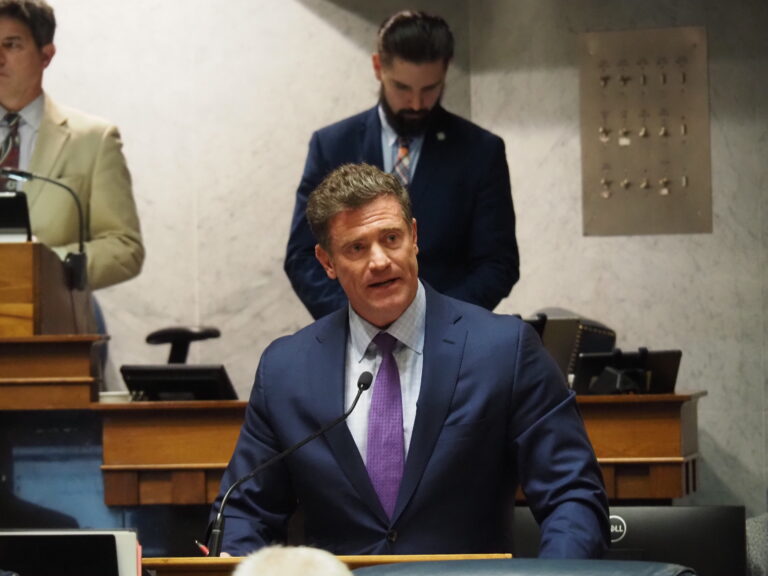
By Whitney Downard | Indiana Capital Chronicle
A law limiting the emergency powers of the governor heads to Gov. Eric Holcomb’s desk after a Thursday vote. Senators passed Senate Bill 234 on a 40-8 concurrence vote, mostly along party lines.
Under the proposal, an Indiana governor may only declare an emergency for 60 days before the General Assembly must intervene. With their approval, the governor can file a 60-day extension.
The language only impacts statewide emergencies.
The bill now goes to Gov. Eric Holcomb, who said he will sign it.
“When SB 234 reaches my desk, I intend to sign it. A big thank you is owed to the authors of the bill and the leadership in the General Assembly for the thoughtful collaboration to achieve the proper guardrails during a statewide emergency while still preserving critical flexibility and authority to react to the unforeseen.”
Currently the state’s leader can only authorize an emergency declaration for 30 days but has endless renewals — a power Holcomb exercised during the COVID-19 pandemic.
Authors cited that repeated emergency declaration as the impetus of the bill. During COVID-19, lawmakers convened multiple times without taking actions to limit Holcomb’s emergency powers.
Holcomb is term limited and a slew of Republican candidates have tossed their hat in the ring to succeed him. The winner of the May primary will likely be the next state governor and at least one candidate has voiced full-throated support for the measure: Lt. Gov. Suzanne Crouch.
“… For our government to serve the people best, we need a balance of power. I am committed to working with legislators to ensure that Hoosiers always have a say in matters that directly impact their families and businesses, especially in a prolonged emergency situation,” Crouch said in a campaign newsletter this week.
Crouch and her competitors were similarly supportive of the Senate version, which would have limited the office to an initial 30-day declaration followed by one renewal — but only for federal funding purposes.
The Indiana Capital Chronicle covers state government and the state legislature. For more, visit indianacapitalchronicle.com.
